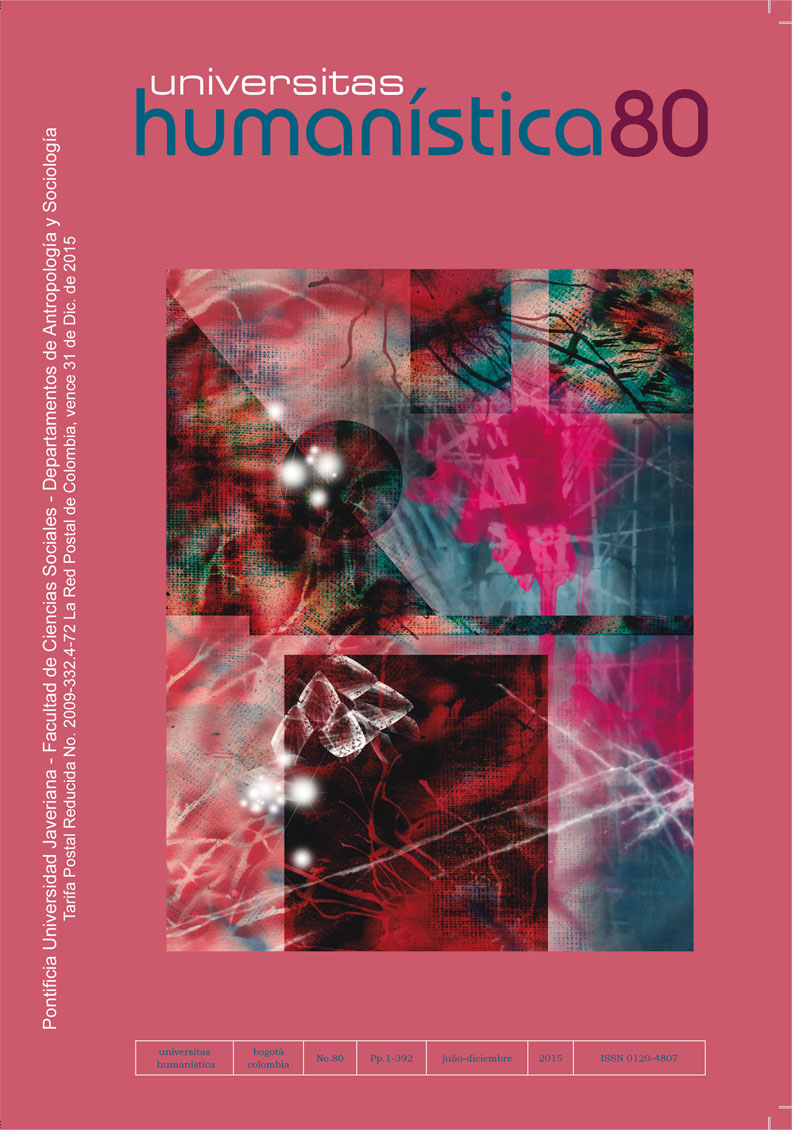Abstract
In this article we explore frontierization practices, understood as the ways in which social groups mark an inside and an outside, in correlation with the differentiation we / others. We seek to identify how these practices operate in the dialectics State - ethnic minorities, which are core elements in the historic architecture of Latin American societies. Although as social constructs these boundaries emerge as sharp dividing lines, we address them as porous membranes selectively volatile, open to reconnections. In order to suggest some relevant and necessary analytical displacements that the current period fosters, we divided the text into four overlapping but distinguishable steps. We address first the dis / continuities in the border conceptualization in social thought. Then we enunciate how political boundaries influence the frontierization practices resulting from difference marking and recognition policies. After that, we examine what we understand as a pluralization of spatial, social and categorical boundaries. Finally, we address social and disciplinary challenges unleashed by the epistemic boundaries recognition
This journal provides immediate open access to its content on the principle that making research freely available to the public, encourages greater global exchange of knowledge.
The journal Universitas Humanística is registered under a Creative Commons Attribution 4.0 International Public License. Thus, this work may be reproduced, distributed, and publicly shared in digital format, as long as the names of the authors and Pontificia Universidad Javeriana are acknowledged. Others are allowed to quote, adapt, transform, auto-archive, republish, and create based on this material, for any purpose (even commercial ones), provided the authorship is duly acknowledged, a link to the original work is provided, and it is specified if changes have been made. Pontificia Universidad Javeriana does not hold the rights of published works and the authors are solely responsible for the contents of their works; they keep the moral, intellectual, privacy, and publicity rights.
Approving the intervention of the work (review, copy-editing, translation, layout) and the following outreach, are granted through an use license and not through an assignment of rights. This means the journal and Pontificia Universidad Javeriana cannot be held responsible for any ethical malpractice by the authors. As a consequence of the protection granted by the use license, the journal is not required to publish recantations or modify information already published, unless the errata stems from the editorial management process. Publishing contents in this journal does not generate royalties for contributors.


